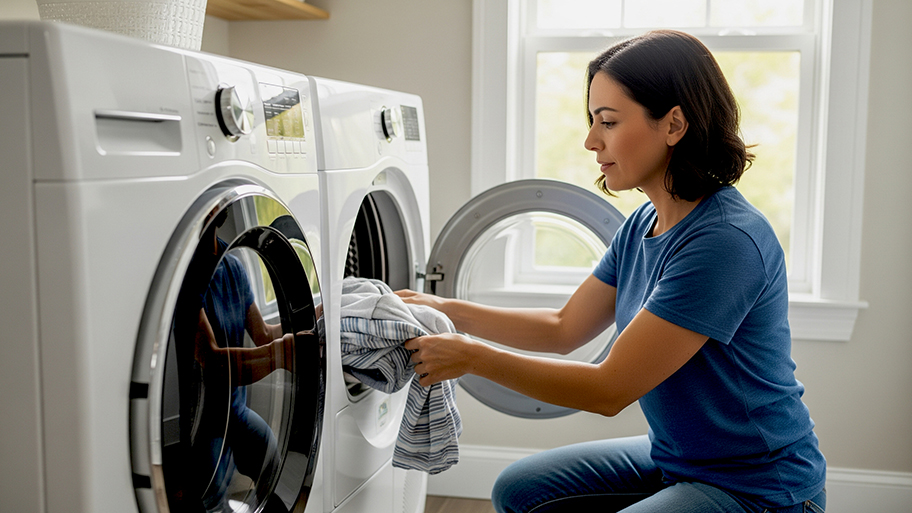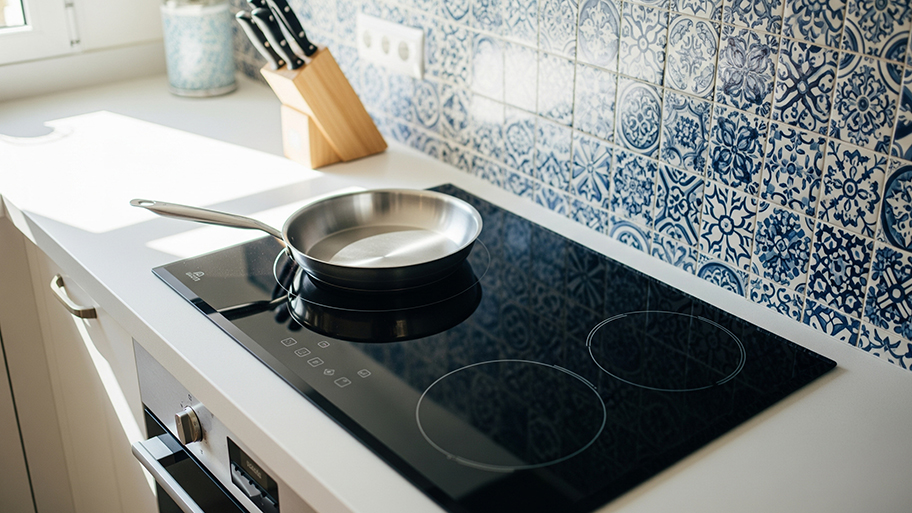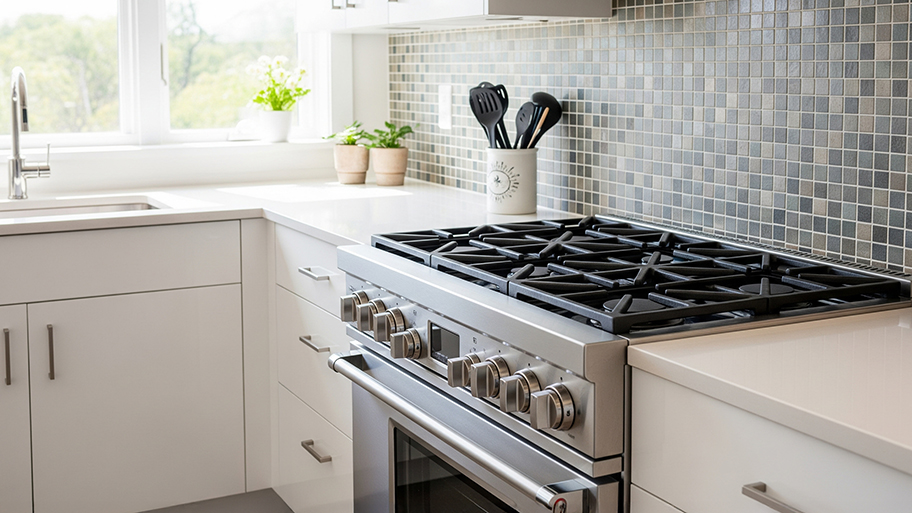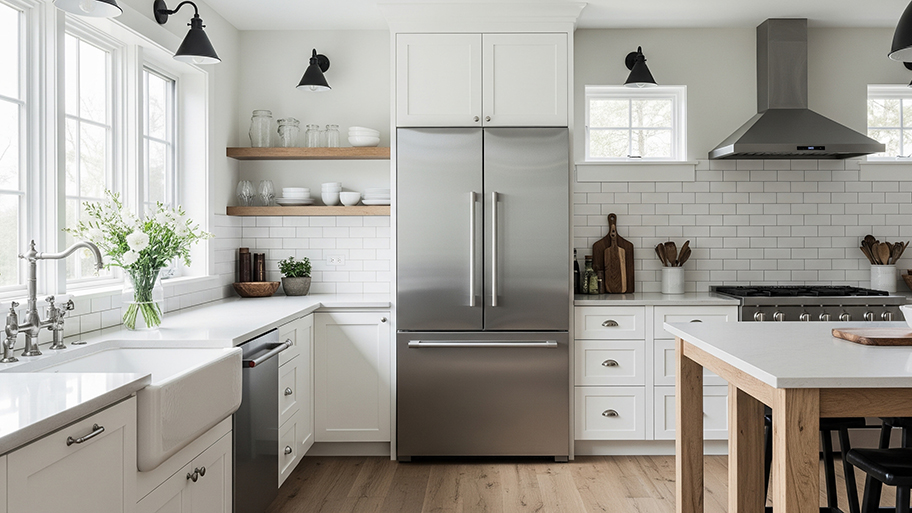
Replacing a dryer belt costs more than just the part unless you can DIY it. The labor cost can easily surpass 90% of the product cost, so if you are handy with tools, try it yourself first.
If home is on the (gas) range, take heart: It can last a while


If you’re a gas stove lover, chances are you’re passionate about your position—and it’s a love affair you want to maintain for as long as possible. Fortunately, gas stoves are usually reliable appliances that can last a decade or longer. Taking the correct maintenance steps helps, though—read on for the full details.
While every stove is different, you can expect a gas stove to last about 10 to 15 years on average.
According to some sources, gas stoves tend to last longer than their electric or induction counterparts, though these options do have their own benefits that might be worth the trade-off.

Although gas stoves tend to be quite durable and require relatively little maintenance, there are factors that influence the longevity of your gas stove. Here are a few to consider.
Leaving your range dirty after cooking could clog the gas stove burners and decrease the flame efficiency. Abrasive cleaners could scratch the grates or burner caps.
The quality of the model you buy can also have an impact on longevity. A cheaper stove or one produced by a less-than-reputable brand might kick the can faster than a more reliable model.
Gas stoves that are used more often can also go through a faster wear-and-tear process, so if you’re cooking every night, you may find it’s time to replace your stove more quickly than someone who regularly opts for take-out.
How can you tell when your gas stove has had enough? Here are a few common signs it’s time to get a replacement:
The flame is weak, even after you clean the burners well.
The flame isn’t blue—which is the hottest part of the fire—and instead just flickers red or yellow.
The stove leaks gas. Obviously, gas leaks are a safety hazard, so if you see or smell a gas leak, a replacement is probably in order.
The stove makes strange noises, like screeching or grinding, while in operation.
In some cases, a gas plumber near you may be able to take care of these issues, so if you’re in love with your stove (and it’s not that old yet), consider hiring a pro rather than going straight for replacement.

To ensure your gas stove enjoys the longest life possible, here are our best maintenance tips.
It may seem like a simple thing—and it may be tempting to leave cleaning the stove until tomorrow morning after the hard work of making dinner—but keeping your gas stove clean will go a long way toward ensuring the burners remain clear and the flame remains strong.
It’s a good idea to do a basic wipe-down of your stove daily, and give it a more thorough scrub on a weekly or biweekly basis (depending on how often you use it). You’ll also want to fully deep clean it every few months.
It’s not just doing the right amount of cleaning, but how you clean your stove that matters. A mixture of dish soap and vinegar is usually enough to cut through the crustiest crud, without potentially damaging the finish of your appliance. Don’t pour water over your stove to clean it, as it may enter the gas line and wreak havoc.
Furthermore, avoid using steel wool or other extremely abrasive materials as part of your cleaning process. These can scratch metal surfaces and damage your gas stove, decreasing its lifespan. You should also avoid sticking toothpicks, kebab sticks, or anything else into the spaces on your burners, even if you can see that they’re clogged. Soft straw or pipe cleaners are specifically made for this purpose and are less likely to break off in your burner or otherwise cause damage.
If you notice your gas stove is acting funny, here are a few troubleshooting tips that might help.
If the flame won’t ignite, check to make sure your gas supply is still turned on—or topped up. Some gas stoves are connected to tanks of gas rather than a city line, and you may need a refill. And if you’ve just moved into a new home, the previous tenants may have disconnected or turned off the gas.
If it won’t turn on, consider the electric. Most gas stoves still need electricity to work, so ensure the stove is plugged in, and if there’s been a power outage, reset the breaker.
If you buy your gas stove new, it may come with a limited warranty that covers certain crucial components or functions for a given amount of time (commonly one year).
While there are extended warranties on the market to consider, it’s important to keep in mind that they have their own caveats: Will you be able to use any repair service you want? Does the plan include professionals in your area? Read all the fine print before you buy that extra package, which might be more expensive than simply paying for repairs themselves.
It can be tough to decide whether you should repair or replace your gas stove. One rule of thumb: If the appliance is through more than half of its life span (in this case, about five to eight years old), or if the repairs would cost more than half of what a replacement would, it probably makes more sense to go ahead and spring for new.
I had a fantastic experience with them . My refrigerator stopped cooling, and they responded quickly, scheduling me for the very next day. The technician was professional, explained everything clearly, and had my fridge up and running in no time. The price was fair ( made a research) and I...
Perfect. Bertie arrived at the time he said he would arrive and he did a great job hauling the appliances through some very tight spots. Work was clean and professional. I'm so happy to have found them. Thank you!
They repaired a leak in my roof. I found them to be very friendly and knowledgeable. They arrived when they said they would and didn't keep me waiting. They made the repair and then inspected the rest of the roof and sealed all of the other flashings. Great job!
quick and expert diagnosis and repair. fair price. great service and no headaches
I called Kevin and he answered the phone, and we set up a time within 24 hours for him to come to my house. He arrived during the window we agreed on, calling first to let me know he was on his way. He diagnosed the problem immediately, gave me a reasonable price, and fixed it. He also...
From average costs to expert advice, get all the answers you need to get your job done.

Replacing a dryer belt costs more than just the part unless you can DIY it. The labor cost can easily surpass 90% of the product cost, so if you are handy with tools, try it yourself first.

Depending on repair needs and machine age and type, the cost to replace a heating element in a dryer can vary. Learn the average repair costs.

Broken glass stove tops are not only unsightly; they can also be dangerous. Use this guide to learn how much glass stove top replacements cost based on factors like size and type.

Working over an open flame gives you better control over your cooking. Learn more about the benefits of converting an electric stove to gas.

Refrigerators comprise many different parts. Understanding what they are and how they function will help you maintain it and troubleshoot problems.

Discover the key signs of Freon leak in refrigerator units, what causes them, and when it’s time to call a pro. Don’t ignore these cooling red flags!